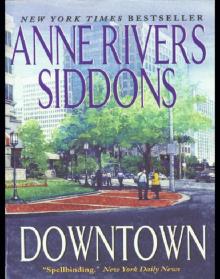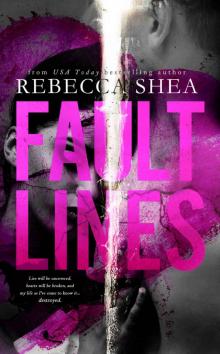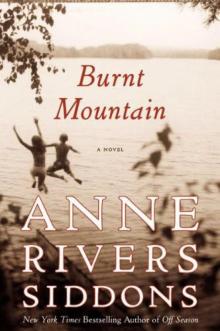- Home
- Anne Rivers Siddons
Homeplace Page 7
Homeplace Read online
Page 7
It was in one of DeeDee’s letters that she learned that Bayard Sewell had entered the University of Georgia in Athens, and that John Winship was paying his way through. She did not answer the letter, and she did not keep it.
As if in recompense for her suffering and deprivation, the Singers offered to pay Mike’s tuition at Radcliffe until Richard graduated from Harvard Law, and she accepted simply and gratefully. After he graduated from Harvard, predictably with honors, Richard joined a struggling young firm in lower Manhattan specializing in legal aid cases, and they moved into a two-room apartment near Third Avenue, on 18th Street. Mike loved the grimy, throbbing city on sight, loved its energy and staggering variety and pragmatic meanness with a fierce and joyous answering affirmation. Most of all, she loved the sheer un-Southernness of it. It was one love affair that never faded.
She transferred to Columbia that summer, studying endlessly on the subway uptown and back, studying late into the blaring nights, when Richard was away at meetings and on difficult cases, as he often was. Sometimes in those headlong days and weeks they met only in the king-size bed that filled the whole of their tiny dark bedroom, so that the telephone sat underneath it and their clothes hung in a Sears cardboard armoire in the living room. She would raise her head from her arm, where it had fallen when the type in her textbooks had blurred and melted away like rain on a cold windowpane, and would hold out her arms to him, and they would make urgent and sweating love on the rumpled sheets that Mike would have forgotten to change for the third week on end. Often they did not speak, only moaned and gasped and cried out their climax and then fell into sleep with the overhead light still on, and sometimes, on weekends, they stayed in bed all of one and frequently both days, eating, sleeping, and copulating. Mike was on the pill, but still, she thought privately that it was a wonder she had not gotten pregnant almost instantaneously.
“All we ever do is eat and sleep and fuck like minks,” she said to Richard once.
“What else is there?” he replied.
“What else, indeed,” Mike said, and realized that for the moment it was true. Her studies never bored her, and neither did their lovemaking. If she never felt for him the helpless and liquid rush of wanting that had taken her almost every time she had looked at Bayard Sewell, she nevertheless responded quickly and ravenously whenever Richard entered her, and came explosively.
A mink is right, she thought, not without a certain self-satisfaction.
She graduated magna cum laude in journalism in 1968, and was hired almost immediately as a research assistant for a weekly newsmagazine, and by the time their daughter Rachel was born in 1974, when Mike was 28, she had had five years of relentless, single-minded work at her career as a free-lance journalist, and small plum assignments were beginning to come in.
Mike was slowly making a name as a chronicler of individuals caught in the mass shoals of contemporary conflicts … the faltering movement that had so drawn her, flailing and falling to earth by now like a wounded bird; the spiraling protests against the Vietnamese war on college campuses; the volatile political conventions; the groundswell of environmental concern. Her eye for searching out precisely the right face and voice to epitomize these issues was keen. But sometimes she would look at her own face in the mirror before a predawn taxi blared outside, or in the black glass of a jetport hung somewhere in an American night, and she would not recognize the pale, sharpened woman who looked back at her. And sometimes she would suddenly see Richard’s face, frozen for a moment in conversation across a room at a client party, or intent on one of the glossy arts magazines he had taken to bringing home, and she would wonder when it had become so bursting, so suffused with sureness and self-congratulation, so beamishly ingratiating to all those people whose names she could not remember, to whose parties they were always going. Mike thought of them as the Other People. They had appeared about the time that Richard had left the small firm and joined a larger corporate law firm in midtown, a year or so before the baby came.
“Oh, yes, the writer,” they said to Mike when they met in yet another Upper East Side twilight, over wine. They looked glossy, expensive, finished, nothing like the friends Mike and Richard had made in the 18th Street days, or the editors and photographers and fellow writers who inhabited her workday world. The Other People looked important. Richard, she realized in surprise, looked like them. Mike herself, even though she dressed each morning in good, if hastily chosen, clothes and left an apartment in the East Sixties much like those of the Other People, did not.
“Interesting,” Richard said once, in the middle of the Other People’s tenure, turning his head this way and that to regard her much as he did the postmodern paintings he was beginning to collect. He was trying to persuade her to buy some new clothes and go to Kenneth’s.
“Intriguing,” he went on judiciously. “Distinctive. But not distinguished. There’s a difference. With a little effort you could be a memorable woman. Far better than pretty. But you don’t do anything with yourself. You haven’t changed your look since I met you.”
“I thought you liked my look … whatever it is,” Mike said.
“I liked it when you were a girl. You’re a woman now.”
“I don’t have time for all that stuff, Richard,” Mike said. But she pushed at her silky flyaway hair. It had long since grown out of its shag, and she had been tying it back in a ponytail with yarn. She had worn it that way on the bus in Mississippi, she remembered.
When the baby came, Richard hired a nurse and a housekeeper, both from an impeccable agency, and then Mike did have time. She had promised him she would stay home with Rachel for at least three years, and with no excuses left and few maternal or household duties, she did at least go shopping and have her hair done, and went to galleries and openings and lunches. And hated it.
In two years she was back at her assignments, with Richard’s protests ringing in her ears and guilt eating at her heart, but small Rachel was thriving with her nanny and her play group, and soon Mike’s momentum was snowballing again.
When Rachel was five and she was thirty-two, in 1979, she lifted her head from her typewriter to hear a perfectly tailored and not-quite-corpulent Richard announce that he was leaving and taking his library and records, his wardrobe and Porsche, his antique pillbox collection and his postmodern paintings, and moving in with a twenty-three-year-old MBA from Wharton named Tracy … one of the newest of the Other People … and his attorney would be in touch to talk about provisions for Rachel.
“I’m not going to try for custody, Micah,” he said, “because I think she’s too young to be uprooted. But you watch your step. I don’t like your work or your hours or all your traveling or your housekeeping—or lack of it—and I don’t like the lunatic fringe you run around with. You’re a totally unfit wife and I could call you an unfit mother without stretching it too far, and you better believe I could make it stick. I’ll be watching you. I won’t have my daughter growing up to be some wild-haired international hippie who never bathes or shaves her legs. I won’t have her making bombs or throwing them, or carrying signs in the streets about them. I won’t have her screwing on mattresses in fucking communes in fucking Spanish Harlem.”
“Would a chaise overlooking the park be better? With a little plastic Harvard MBA?” Mike retorted. “I won’t have her growing up to be some … varnished little consuming machine in designer jeans.” But she was frightened. Could he really take Rachel? Would he? She knew that he could, and would, if he chose. But he duly moved out and into a co-op on the park with the wellborn and cool-mouthed Tracy, and time passed, and he made no move to do so, and she gradually relaxed and felt control and assurance slip back.
For the next seven years she and Rachel lived existentially and at top speed and, Mike thought, happily, in the spacious, sunny, only slightly shabby apartment she found in the Village. Mike dismissed the nanny and the housekeeper, who wouldn’t travel below Grand Central in any event, and found a neighborhood day-care cooperat
ive for Rachel, put her in a public school, engaged a warm, sprawling Costa Rican widow in the building to stay over when she was away on assignment, organized a stimulating routine of museums, exhibits, and performances for Rachel’s after-school and weekend hours (for she was adamant about her daughter’s taking advantage of the city’s incomparable resources), and plunged back into her throng of faces in crisis. Presently Richard shed his aging MBA and moved to Los Angeles to practice celebrity management and entertainment law and scatter Rachel with bi-weekly showers of Stardust. Reserved and equable Rachel appeared to take them in stride, saving her sedate small passions for the eastern, urban largesse all around her; like Mike, and to her gratification, the spell of Manhattan held Rachel safely in thrall.
Mike found a pleasant and honorable succession of lovers with whom assorted beds, if not the earth, moved regularly, the last and most permanent, as well as spectacular, being Derek Blessing, and pursued her work with all the channeled velocity in her slender being. There was still little time for introspection, but Mike had jettisoned introspection when she left Lytton. She seldom looked back … not at Lytton, not at Bayard Sewell, not at Richard, never at John Winship. She juggled the shining balls of her life faultlessly. She invested no more of herself in her relationships than she could afford to lose. She rode her work intently, but lightly, and with skill and relish. She played all the skeins of her life with cool and expert hands.
And then came the lunatic week in May of her fortieth year, in which the glittering balls that Mike kept spinning so deftly spun into the sun and crashed to earth. A string of seven luminous, new green days in spring. One week—
It was like something out of a bad contemporary romance novel, the kind whose metallic, embossed mammalian covers irritated Mike in airports all over the country. Just home from a long assignment on a pioneer shelter and center for battered women in the Bay Area, Mike found a notice in her mailbox that the rent-controlled building in which she had lived for seven years was going co-op, and she had a month either to opt to buy or find another apartment. Buying was out; her income as a journalist had risen steadily with the increasing national assignments, but it was no match for the voracious maw that was life in New York. Checking in with the newsmagazine for which she had done most of her recent work, she learned to her shock and fury that the prized assignment that she would have undertaken that summer, a three-month stint in drought-stricken Africa with a legendary photographer, to be called “The Face of Famine,” had gone to a very much younger, bitchier, and brilliantly gifted female journalist who had been sniffing obsequiously at Mike’s heels for a couple of years. Her mentor, she had called Mike. Mike had contracted with a well-known publisher to expand the series into a book; it was an undisputed career maker, and she had long since spent the advance on summer camp and orthodontia for Rachel.
And then Rachel, whose capacity for conspicuous consumption had risen dramatically along with the emergence of her budding breasts and elegantly lengthening legs, had calmly, even coldly, announced that she had decided to go and live with her father in Los Angeles.
Mike, reeling back in her mind over all the long years of her conscientious de-emphasis of the material, her careful attention to providing what she thought of as a “liberal humanist environment” for Rachel, could scarcely summon the breath to ask her daughter why. She knew, though, and damned Richard and his poisoned, shining letters.
“Because,” said Rachel with stabbing betrayal, “I’m sick of living in a roach motel and never having anything decent to wear and going to school with half of Harlem and hanging around with all those stupid friends of yours with froozy hair and no makeup who pass out stuff about the stupid nuclear winter in stupid Washington Square.”
It was an astonishing speech for normally sunny, unworldly Rachel, and Mike, looking at the belligerent changeling in the bright, spacious, maybe a little shabby breakfast room of the Bleecker Street apartment, felt emptiness open hissingly behind her eyes. To her vast surprise, she discovered that what she wanted more than anything in the world to do was smack the elaborate condescension off Rachel’s face, screech her fury at her ex-husband, and crush her daughter in her sheltering arms for perhaps ten years. But she had always scrupulously honored Rachel’s opinions and decisions, and so in the dizzying space of three days she had packed up Rachel’s childhood (“Don’t bother about my clothes; I’ll be getting all new things from Dad”) and put her on a United flight to Los Angeles, first class, of course, courtesy of Richard. When she got home from the airport, Mike had methodically put Rachel’s denuded room in antiseptic order, firmly closed the door on it, and gone out for the early Times, to begin to search for a new apartment. She did not eat much for the next day or so, she slept little, and she did not cry.
And then, on the seventh morning, a letter had come from her sister DeeDee, married and still living in Lytton, Georgia, saying that their father, who had lived alone since Mike left home in 1964, was suffering from prostate cancer and needed full-time attendance. DeeDee had been having him for lunch and dinner most days since his retirement, but now her own mother-in-law, an Alzheimer victim whose demeanor was only slightly more unpleasant than it had been before her illness, had come to live with her and her husband, Duck, and she simply could not stay with their father herself or have him in her home. And there was no money, at least in DeeDee’s family, and their father stubbornly refused to tap or even discuss his own bank account. Could Mike send money for a live-in companion or, failing that, come herself?
“I know you have your career and have not seen Daddy for all these years—and I’m not blaming you, Mikie, it was terrible, all that name-calling and refusing to see your husband and baby—but he is such an old man, and so sick, and he asked for you. He really did, Mikie, believe it or not. This would just be till we could decide what to do. It really can’t be for long. Eugene has some good ideas. I don’t want to sound whiny, but you know I’ve never asked you for anything, and it has been terribly hard on me for a long time …”
Well, that’s exactly how you do sound, Mike thought, and then was stricken with exasperated guilt. Her head began to pound mightily. DeeDee’s letters always seemed to stink sweetly of reproach, and she seldom answered them. For her father she felt nothing but a great, flat calm.
“Later for you,” she said aloud, and swept the letter and the disastrous week out of her mind, and went straight to her closet for her weekend tote and dashed out to catch the 2:10 to Bridgehampton, where Derek Blessing had answered the telephone in his carefully Spartan, much photographed beach house in Sagaponack, and said yes, he was just getting into the piece for Rolling Stone, but he’d try to be at the station to meet her, and if not, just get a cab and he’d pay for it.
And then the spiraling terror had struck on the train just out of Hampton Bays, and now Mike lay in the flying green ocean light of Derek’s Sagaponack bedroom, on the other side of a great chasm in time.
11
WHEN SHE FINALLY FINISHED TALKING THERE WAS A LONG silence. In it she could hear the weary hiss of the moribund ashes settling in the Swedish fireplace and the sodden snap of the windsavaged American flag on the lower deck, which Derek was forever forgetting to take down in bad weather. Under that was the grumble-hush of the surf. It was quieter, farther away. Mike turned her head. From the look of the pale-lemon sunlight on the deck outside the sliding doors, she judged it must be close to midafternoon. She had talked for at least three hours, then. She stretched in the great bed. Her limbs were stiff; she must not have moved much during the time she was talking. Her muscles must have been clenched. She rolled her head on her heavy neck and felt Derek’s forearm beneath it. She felt clean, hollowed, weak, so light that she might float up to the ceiling, except for the weight of the fur throw.
“Holy shit,” Derek Blessing said softly at last. “Jesus Christ.”
“You wanted history,” Mike said, in a scratched and used voice. “You got history.”
He pulled her clo
se to him, so that her face was pressed against his ribs. He smelled of sweat under the still-damp velour sweat shirt; the room was uncomfortably hot now. Without being able to see anything but velour, deck, and sky, Mike knew that spring was back outside. Her own breast and legs and torso were damp with sweat, and the roots of her hair were wet. Her mouth tasted foully of the long-ago champagne, a bottle of which swam tepidly, unopened, in the ice bucket on Derek’s side of the bed. Her head should, by all rights, be hurting now as it always did after she drank champagne, but it did not. The cold, nauseating snake of the anxiety was gone, too; was not even dormant, was not there at all. Gratefully, on a rush of pure affection, Mike stretched out her chin and took a small nibble of the fabric of Derek’s shirt, and he swept the dandelion hair off her face with uncharacteristic gentleness. The word “cherished” sprang from nowhere and hung, whole and glowing, in Mike’s mind.
“I asked for history and I got tragedy,” he said. “Goddamn, Mike. Nothing in Russian literature beats it. Faulkner couldn’t have invented it. Aeschylus might have. My God. No wonder you had an anxiety attack on the train. It was the letter that did it, of course. The fucking old bastard … he as good as mortally injured you and put you out on an ice floe to die.”
“Well, I didn’t die, did I?” Mike replied, sitting up. The throw fell to her waist. Her bare breasts were lightly sheened with perspiration. He looked at her silently, a measuring and abstracted look that she had seen only once or twice before, when he had been working well on a novel.
“Why are you staring at me like that?” she asked, reaching for her sweater and skinning it over her head. “Anna Karenina I’m not. I can handle this now. I was never in serious trouble. All of it coming at once threw me, but now that I’ve talked it out …”

 Colony
Colony Nora, Nora
Nora, Nora House Next Door
House Next Door Homeplace
Homeplace Downtown
Downtown Peachtree Road
Peachtree Road Sweetwater Creek
Sweetwater Creek Fault Lines
Fault Lines Low Country
Low Country The Girls of August
The Girls of August Burnt Mountain
Burnt Mountain Islands
Islands